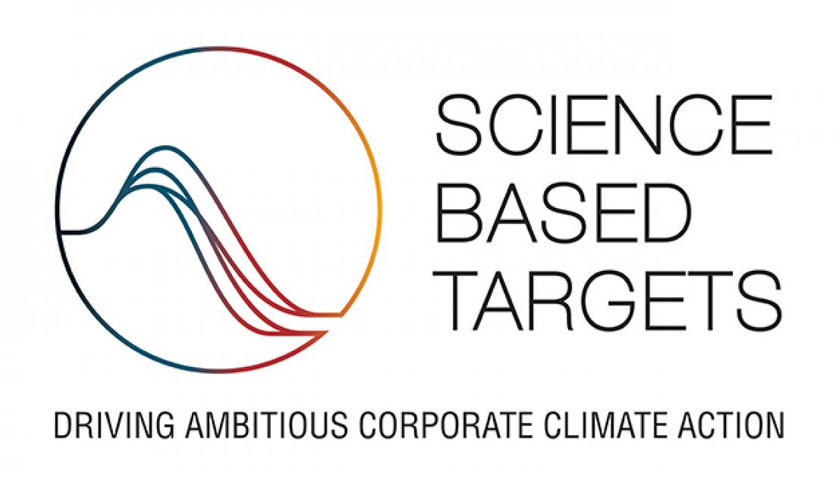The Science Based Targets initiative (SBTi) is publishing four technical outputs as an early step in the process for the revision of the SBTi Corporate Net-Zero Standard.
The SBTi announced the timeline and published the Terms of Reference for the review of the Corporate Net-Zero Standard in May 2024, ensuring that the Standard continues to align with the latest scientific thinking and best practice, and addresses challenges related to scope 3 target setting.
Scope 3 emissions make up 75% of the average company’s footprint – and are the major challenge when it comes to corporate decarbonization, as well as presenting the greatest opportunity. As a leading voluntary standard-setter, the SBTi is responding to the experiences of the thousands of businesses that have had their targets validated by the SBTi to explore options to develop a more effective approach to addressing scope 3 emissions and enhance the impact of its Corporate Net-Zero Standard.
The outputs issued today
As an early step in the process to review the Corporate Net-Zero Standard, in line with the regular review cycle, the SBTi is today releasing four technical outputs:
- Scope 3 discussion paper: A discussion paper setting out the SBTi’s initial thinking on potential changes being explored around scope 3 target setting, including underlying principles and concepts. The discussion paper is informative by nature and does not propose draft requirements or criteria.
- Evidence received on the effectiveness of Environmental Attribute Certificates: The release of all evidence submitted as part of the open call for evidence which ran September to November 2023 on the effectiveness of Environmental Attribute Certificates (without SBTi assessment).
- Synthesis report of evidence on the effectiveness of Environmental Attribute Certificates in corporate climate targets – Part 1: Carbon credits: A report presenting the SBTi’s synthesis of the evidence submitted through the call for evidence on the effectiveness of carbon credits in corporate climate targets.
- This is the first of the three distinct reports that will be published as outlined in the Terms of Reference; the reports on the other EAC instruments will be published at a later stage.
- Findings of independent systematic review on the effectiveness of carbon credits in corporate climate targets: A statement on the findings of the assessment conducted by an independent third party on peer-reviewed academic literature on the effectiveness of carbon credits when used as a substitute for direct abatement. The statement summarizes the process followed, findings and limitations of this research exercise.
While the evidence submitted and examined reveals some trends and provides insights, the findings of the publications are mixed and further work is needed in the next stage of the process to draw conclusions.
Environmental attribute certificates
The scope 3 discussion paper explores scenarios on how environmental attribute certificates, including carbon credits, may be used in science-based target-setting contexts. The three scenarios it outlines related to carbon credits do not include offsetting emissions – a situation in which companies buy credits instead of reducing emissions within their value chains to make claims against set targets. In each of the illustrative scenarios outlined in the scope 3 paper, the priority remains the direct decarbonization of the value chain. Credits cannot be used as a substitute for this.
Two of these scenarios outline how credits might be used to provide evidence of decarbonization within the value chain or the permanent storage of carbon to counterbalance the impact of residual emissions to meet the requirements in the current Corporate Net-Zero Standard. The scope 3 paper also outlines a scenario in which companies take on an expanded responsibility for their emissions. In this case, credits might be used to cover emissions excluded from target boundaries established within the current standard – ensuring they go above and beyond the existing requirement for decarbonization within the value chain. This could incentivize additional finance for climate action, without diverting resources from emissions reduction within their businesses.
These scenarios are illustrative only and should not be considered as guidance. They will help to inform the ongoing process.
Next steps
Following today’s announcement, a draft Corporate Net-Zero Standard will be released for public consultation towards the end of Q4 2024. SBTi welcomes and encourages contributions from civil society, business and government. The SBTi will publish a summary of feedback received, respecting data privacy and data protection regulations, that will be considered by the SBTi to inform the development of the standard.
Stakeholders are also invited to share feedback on the scope 3 discussion paper via this feedback form.
Sue Jenny Ehr, Interim CEO, SBTi said: “Today’s announcement marks a key step in the revision process for the Corporate Net-Zero Standard. Over the last decade, the SBTi has validated the targets of over 5,000 companies with another 3,000 companies having committed to submit targets for SBTi validation. Targets are the first step to decarbonization and it is important that the SBTi conducts a comprehensive process to revise the Standard to help companies take the lead on climate action and drive down emissions.”
Alberto Carrillo Pineda, Chief Technical Officer, SBTi said: “The outputs released today are a critical step in understanding how the SBTi can develop a more sophisticated approach to scope 3 to help more businesses set targets. The SBTi believes that direct decarbonization must remain the priority for corporate climate action and looks forward to the extensive public consultation on the draft Corporate Net-Zero Standard.”
